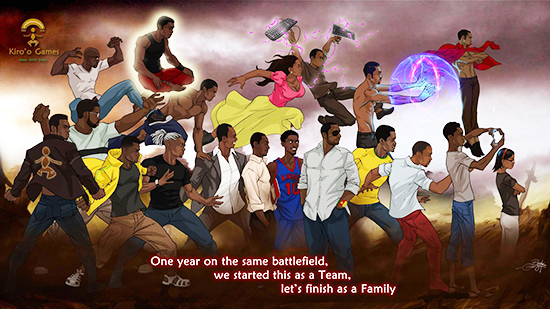
To be realistic is to find a rational way to achieve a magnificent goal.
PS: This is neither a biography, nor a success story. This is just the testimony of an African entrepreneur for those who can be inspired by it, here or elsewhere....
Read more
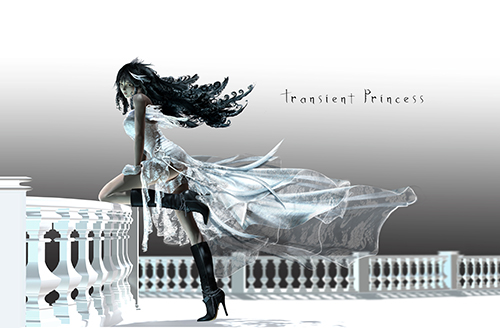
A user of one of my web applications sent the following question :
Hi my name is T. and I am 15, when I am older I want to be a part of the gaming industry and I am just wondering can you guys help with that, can you give me any tips or any experience?
Would posting to your website help me out in this? I would love to hear your reply, it would really help me out.
Here was my reply:...
Read more
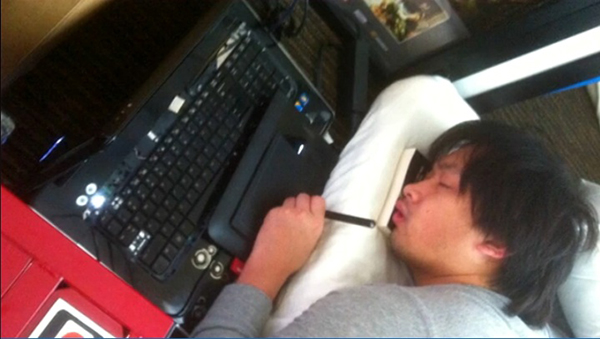
There are some people who are willing to sacrifice almost everything, including their time, resources, sometimes even their social life, their sleep and some "normal" pleasures of life. All of that, in order to work hard and focus on their vocation, to improve things or try and make their world a slightly better place. Your grandparents had a word for that: Saints. Today we refer to them as Entreprenerds....
Read more

In Africa, in general there are not enough teachers and not enough hours of classes a day to teach children everything they need to know. That's why we need children to stay interested and continue to learn voluntarily, even after leaving the classroom.
There is a solution that costs virtually nothing: alternate reality games....
Read more

Let's admit that the education system in Africa is currently rather demotivational.
From the beginning of the school year, and starting the first homework, the ambitious student sees himself with a perfect score of 20 out of 20, but from there, the only possible direction is the reduction of his points, depending on his mistakes. If he is really brilliant, he could stay close to the average of 20, otherwise in general his average score drops with each of his mistakes.
There is a sort of feedback loop that encourages failure: when you have a bad grade, you feel less motivated to study, so you study less, so you have more bad grades, and so on. Basically, the more you fail, the more you fail.
However, in games, we learn that progress encourages progress and that the desire to be effective is a much stronger motivator than the fear of failure....
Read more
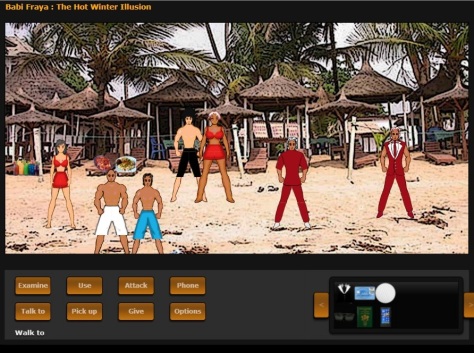
I just published a beta version of my first complete game. If you have a moment to try it, I hope you will enjoy it : http://babifraya.com/...
Read more
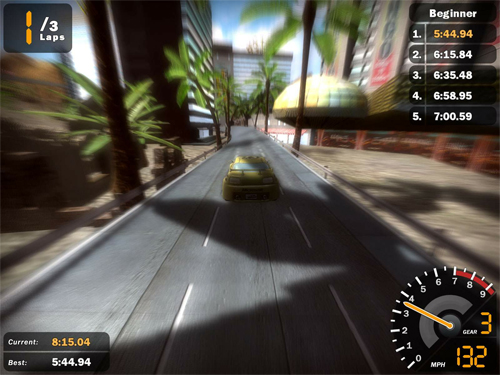
A common start ups question in the gaming industry is : Which graphical environment should we use ? As time is money, a crucial factor in a choice is time: not only the time it takes to build complete games with each API but also a fluid timing during the gaming experience to make it enjoyable. In this analysis, we compare the OpenGL industry standard to the Microsoft XNA game framework on the speed factor. The study includes learning curve, programming, modeling and rendering speeds on both sides....
Read more
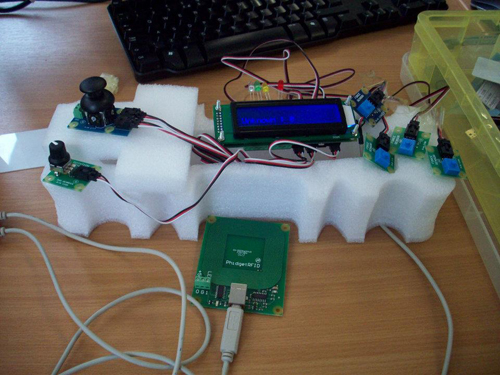
Phidgets are a set of "plug and play" building blocks, some low-cost electronic components that you can control from your personal computer via USB. They provide you with some extra input/output methods beyond the classic mouse + keyboard + screen.
As Harold Thimbleby mentioned in his book Press On, phidgets are a very nice way to get into hardware programming, as you may want to build real systems, not on screen or web browser simulations : phidgets are so-called because they are the physical equivalent of on-screen widgets (Windows Gadgets).
Phidgets = Physical + Widgets
(Widgets = Windows + Gadgets)
Where to find them ?...
Read more
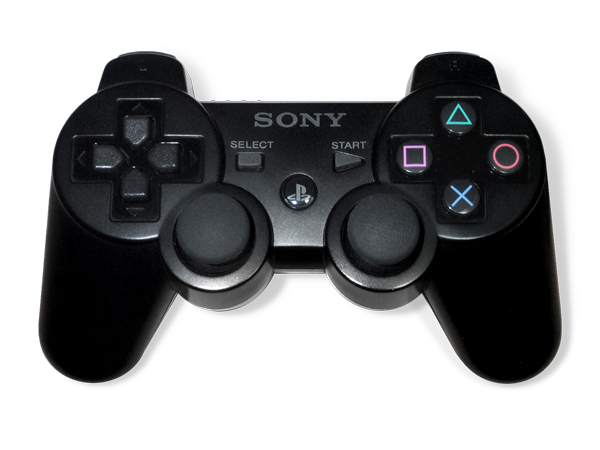
The dimensions of the controller are roughly 6 x 3.5 x 2 inches.
The Dual Shock has on the left side, the same directional pad found on most controllers. However, on the right, the action buttons are labelled with original symbol; this is also an innovation by Gotoh while conventional controllers normally used numbers and letters to label the buttons, as he states himself: "Other game companies at the time assigned alphabet letters or colors to the buttons. We wanted something simple to remember, which is why we went with icons or symbols, and I came up with the triangle-circle-X-square combination immediately afterward." In an interview reported by Games Radar, Gotoh explained how it came up with the symbols "I gave each symbol a meaning and a color. The triangle refers to viewpoint; I had it represent one's head or direction and made it green. Square refers to a piece of paper; I had it represent menus or documents and made it pink. The circle and X represent 'yes' or 'no' decision-making and I made them red and blue respectively."...
Read more
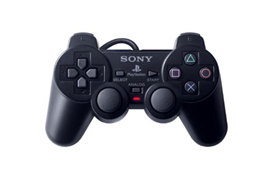
We just reviewed the evolution of the game controller in general. Now let’s dip in the very interesting story of the creation of the PlayStation Controller. The facts reported here mainly come from Kevin Gifford who wrote the "PlayStation 1 Design" article and from Reiji Asakura who wrote the book "Revolutionaries at Sony – The Making of the Sony PlayStation and the Visionaries Who Conquered the World of Video Games."...
Read more